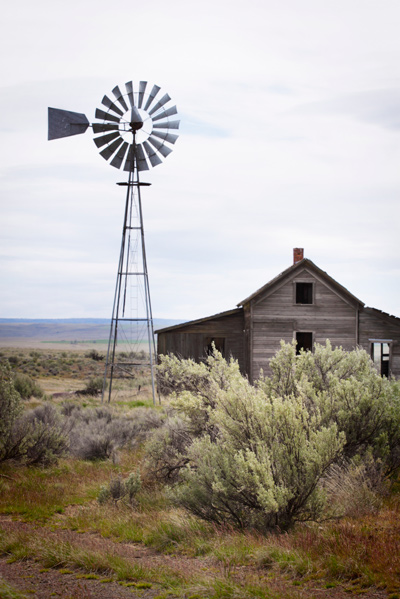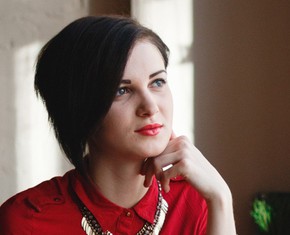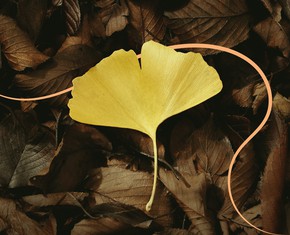The views expressed in our content reflect individual perspectives and do not represent the authoritative views of the Baha'i Faith.
Perhaps old CW Cone, the late rancher who built the house my wife and I now live in, has infected me with a bit of his own perspective about life out here in the country. He was rich. He owned all the land from here to Zephyrhills. He could have lived anywhere he wanted or built some palatial estate in town, but he chose instead to remain in this old ranch home because he had built it himself in 1953 before he had so much.
 Over the years he added to it according to the proclivities of each succeeding wife. He paneled it with tongue-in-groove boards fashioned from the felled cypress trees in his fields. He had a huge fireplace built in the den with field stones dug up from plowing these same pastures, and early on CW determined that he would stay in this place until he died because he loved it so.
Over the years he added to it according to the proclivities of each succeeding wife. He paneled it with tongue-in-groove boards fashioned from the felled cypress trees in his fields. He had a huge fireplace built in the den with field stones dug up from plowing these same pastures, and early on CW determined that he would stay in this place until he died because he loved it so.
And he did. His life’s journey ended five years ago in a room near an outside door where they placed him partly so they could haul him out more easily. He was a big man, a large man, a man of substance. And though in the end he slept with a shotgun at his side, had two nurses, a cook, and a foreman to do his bidding, he did things the way he wanted, and not many people get to do that. At the estate sale, hundreds of town folk came to buy something of his or just to see how the notorious CW had lived. “I don’t think this is so nice,” I heard one woman say. “My place is fancier than this.”
I sense that CW is pleased with what we have done to preserve what is fine and noble and beautiful in this house and outside it. We have changed only what was needful, so he feels no need to haunt us. I think he is pleased that I have come to know this house and its convoluted construction as well as he did, maybe better.
I think he’s at peace. I pray that he is, because he left us this special place where I have spent so many days beholding the pastures and trees in any direction I look. He has left me a place to write and think and do a thousand tasks I have never done before. He has left me a place where I too am more or less at peace, even though I am never still and even though I am starting to count down the years. I frankly wouldn’t mind living out my days here—not at all.
Though I am retired, I am writing and farming and working harder than ever before. My one concern is that “I always hear/ Time’s winged chariot hurrying near.” Yes, Marvel’s one good poem does its work on me in even as it seduced whatever fair young thing he plied with that wonderful gambit. Because it’s undeniably true! We’re all gonna die!
Go ahead! Say it out loud once! Doesn’t it sound like a line out of a World War II battle movie with John Wayne as the tough but loveable sergeant? On the big screen or the TV, it doesn’t worry us. We know the hero will survive unless the director has pulled a fast one on us—certainly we would have read that in the reviews. So no matter how dire it looks for those fictional characters who represent us on some emotional level, we know at heart that everything will turn out okay.
Now say it again, but calmly, factually: “We are all going to die.” Is there any doubt that this is true, an integral part of life, every single life? This deep truth about death causes Shakespeare’s Hamlet to refrain from slaying himself as he desperately seeks to end the anxiety and depression which consume his psyche. If he is to be believed, Hamlet refrains from self-slaughter not because he fears the possibility of nonexistence. To him, ceasing to exist would be preferable to his present condition of emotional pain, dark depression, rage, turmoil and confusion.
What he fears, in other words, is not death, but the possibility of an existence after death in which he might remain just as bewildered and confused and alone, but without the ability to respond in any way—he might be eternally doomed to remain just as he is. Therefore, his “dread of something after death,/ The undiscovered country from whose bourn/ No traveler returns. . . ” impels him to conclude that it would be best simply to “bear those ills we have/ Than fly to others that we know not of?” Why should he take the chance of leaping into another reality that might be worse than the one in which he presently abides?
Surely you’ve heard the first lines of the “serenity prayer” by Reinhold Niebuhr: “God grant me the serenity to accept the things I cannot change; courage to change the things I can; and wisdom to know the difference.” Perhaps these axioms about life and death are the best we can come up with.
But what if they aren’t? What if there is a logic and consolation to this perplexing uncertainty about our lives that will enable us not to blunder around so blindly in an attempt to fashion something that makes sense, some course of action that will enable us to endure, to have an impact on reality or, at the very least, to be remembered?
If life is confined to the stuff between being born and dying, and if the paradigm imposed on us for successful living—the “Good Life”—is ultimately a chimera, a mirage, then a second problem we face regarding our own mortality, once we become aware of it, is how to plot a course for ourselves that has the greatest meaning, or at least some meaning.
The Baha’i teachings, as this series of essays will attempt to show, have some important things to say about this central question of human life:
…it behooves man to abandon thoughts of nonexistence and death, which are absolutely imaginary, and see himself ever-living, everlasting in the divine purpose of his creation. He must turn away from ideas which degrade the human soul so that day by day and hour by hour he may advance upward and higher to spiritual perception of the continuity of the human reality. – Abdu’l-Baha, The Promulgation of Universal Peace, p. 89.
Do the various afterlife paradigms seem mythical, far-fetched, or nonsensical to you? Before we venture out on our own, it would obviously be the better part of wisdom first to see how others have responded to this challenge. And because our first awareness of our own mortality occurs in our childhood and youth, we might find some value first in assaying what some of the great minds have to say about those first images of death and mortality and the power of those childhood visions to shape our life’s purpose.
















Comments
Sign in or create an account
Continue with Googleor